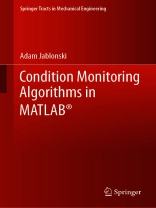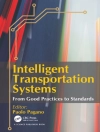This book offers the first comprehensive and practice-oriented guide to condition monitoring algorithms in MATLAB®. After a concise introduction to vibration theory and signal processing techniques, the attention is moved to the algorithms. Each signal processing algorithm is presented in depth, from the theory to the application, and including extensive explanations on how to use the corresponding toolbox in MATLAB®. In turn, the book introduces various techniques for synthetic signals generation, as well as vibration-based analysis techniques for large data sets. A practical guide on how to directly access data from industrial condition monitoring systems (CMS) using MATLAB® .NET Libraries is also included. Bridging between research and practice, this book offers an extensive guide on condition monitoring algorithms to both scholars and professionals.
“Condition Monitoring Algorithms in MATLAB® is a great resource for anyone in the field of condition monitoring. It is a unique as it presents the theory, and a number of examples in Matlab®, which greatly improve the learning experience. It offers numerous examples of coding styles in Matlab, thus supporting graduate students and professionals writing their own codes.’
Dr. Eric Bechhoefer
Founder and CEO of GPMS
Developer of the Foresight MX Health and Usage Monitoring System
İçerik tablosu
Introduction.- Principles of condition monitoring systems.- Vibration components generated by rotary machinery.- Signal processing algorithms.- Vibration-based condition assessment methods.- Synthetic signals generation methods.- Simulating operational signals.- Simulating long-term machine fault development.- Analysis of long-term fault development.- Connecting MATLAB® to CMS.- Development of interface for direct data access (DDA).- Prototype tools.
Yazar hakkında
Adam Jablonski is a lecturer in the Department of Robotics and Mechatronics of the Faculty of Mechanical Engineering and Robotics at the AGH University of Science and Technology in Krakow, Poland. He has been also working in the industry. After few years of experience as a diagnostic engineer, he became a senior research analyst in the field of condition monitoring systems of rotary machinery. He developed numerous pioneering signal processing methods, including Protrugram, ICPCP (patent No. PL223044B1 upgraded to ICPCM), a method for automatic validation of vibration signals and a model-based threshold configuration in distributed CMS, among others. He graduated from Central Texas College (USA) with Highest Honors (2004), and from AGH University of Science and Technology (Bachelor – 2006, Master – 2008, Ph D – 2013). He is the author of nearly one hundred publications in the field of condition monitoring systems, signal processing, and machine diagnostics. He received the Polish Prime Minister Scientific Award in 2014, and won the Outstanding Young Scientists competition of the Polish Ministry of Science and Higher Education in 2013. Since 2018, he has been a Member of the Board of Directors (International Liaison) of the Society for Machinery Failure Prevention Technology (MFPT). He is also an active peer reviewer in the field of measurement and a member of the Math Works® Book Program.












